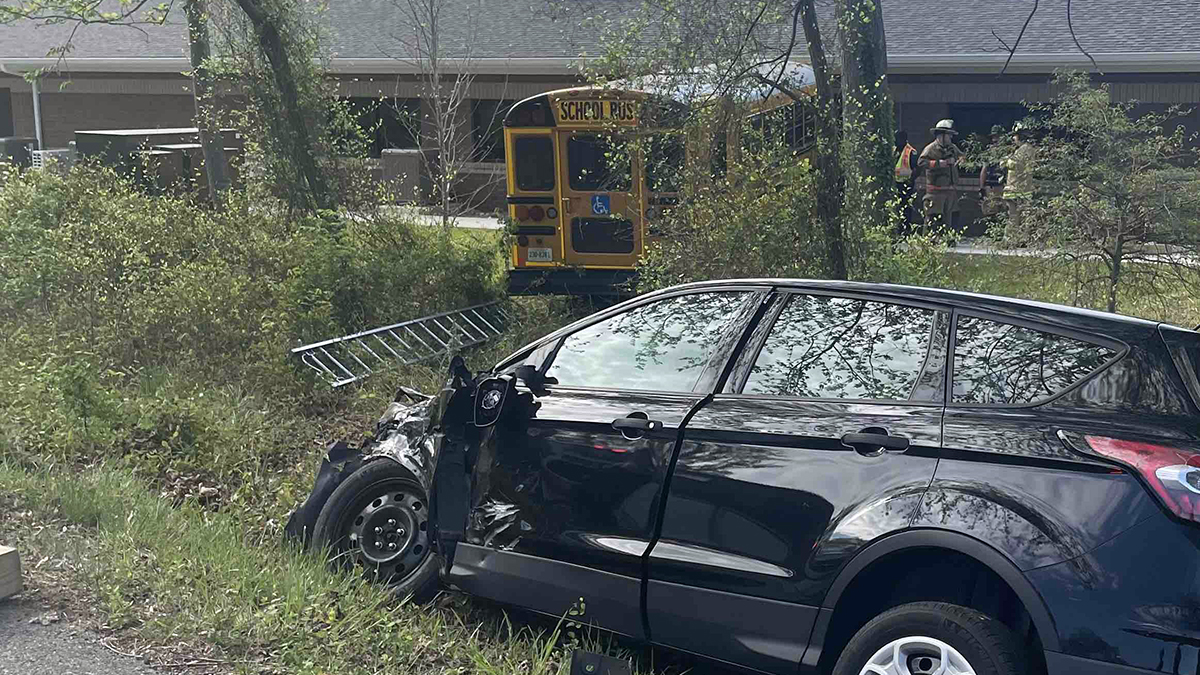More than 80 people trapped in a smoke-filled Metro train in downtown D.C. filed lawsuits against the transit agency on Tuesday, the first anniversary of the accident that killed a woman.
Attorneys filed 87 separate lawsuits on behalf of the passengers, who said they're still dealing with the emotional effects of the tragedy. One man described feeling helpless as dozens of riders waited to be rescued. Another survivor said she's haunted by the image of the woman who died.
"We were totally helpless. We were told to stay put," passenger Jonathan Rogers said. "If you open the doors or get off the train, the train can't move, so you'd be jeopardizing everyone else if you try to get off the train, so there was nothing to do but wait and hope."
He and other passengers took turns giving a Virginia woman, Carol Glover, CPR, but the 61-year-old woman died.
Passenger Dennean Baker wiped away tears as she described what happened last January.
"Them bringing her through the train and her being unconscious," she said. "That was a memory that I still live with."
On Jan. 12, 2015, a Virginia-bound Yellow Line train had just left the L'Enfant Plaza station when it stopped about 800 feet beyond the platform. Witnesses described a chaotic scene aboard the train as passengers tried to escape thickening smoke, and many passengers left the train on their own before emergency responders arrived on the scene, said Michael Flanigon, an investigator with the National Transportation Safety Board.
"People could barely breathe," passenger Denzel Hatch recalled.
Glover died. Her sons have filed a separate lawsuit.
Local
Washington, D.C., Maryland and Virginia local news, events and information
Attorneys said their clients have suffered ongoing health complications from the smoke inhalation, although a version of the complaint shared with reporters Monday does not provide details. The lawsuit says Metro has failed to disclose the chemical compounds that were part of the smoke, which may have impaired treatment for patients.
Attorneys for the passengers have not attach a dollar amount to the lawsuit, but they said they would like to see it go to court.
On the one-year anniversary of the tragedy, why it happened still is not clear, News4's Adam Tuss reported. Metro safety reports document pools of water near high-voltage equipment just outside the L'Enfant Plaza station.
Marc Bashoor, chair of the Metropolitan Washington Council of Governments' fire chiefs, which have taken an active role in Metro safety, described the inside of the tunnels.
"I can tell you that I've ridden the trains and I've seen the water dripping down as you ride by, you see that and you gotta wonder what's going on there," he said.
Bashoor, who also is the Prince George's County fire chief, said the response to the incident should have been different.
"I liken it to someone trapped in a building that's on fire for 45 minutes. Put yourself in that position," he said. "I can't even imagine what they were going through."
Last fall, oversight of Metrorail was transferred to the federal government, at least until a backlog of safety issues is addressed.
The Federal Transit Administration (FTA) announced Monday it will move from periodic to daily, unannounced inspections of Metrorail.
"Although FTA is fulfilling a critical safety oversight function, responsibility for performing the actual work of making Metrorail safer for passengers and employees rests squarely on WMATA," said FTA Acting Administrator Therese McMillan.
The FTA called the deadly smoke incident "a turning point that highlighted systemic WMATA Metrorail safety deficiencies and the inadequacy of its regional safety oversight agency."
Metro's new general manager, Paul Wiedefeld, said he welcomes the increased oversight.
"That is the new norm, so I think that's another big change that is starting to filter through the whole culture," he said.
Wiedefeld said safety is his top priority.
"I meet with every [batch of new Metro employees] as they come in the door, and the first message I give them is that is what their job is, the safety for each other and the safety for our customers," he said.
Wiedefeld said coordination with emergency responders — a specific problem during the 2015 incident — has improved, and a new fire department liaison is stationed in Metro's rail operations control center. He said additional training and drills is also making the train system safer.
Rogers, who survived the tragedy, said Metro's promise to improve doesn't matter to the passengers on board that day.
"What's that do for Carol Glover? Like everybody else trapped on the train, it's too little too late," he said.



